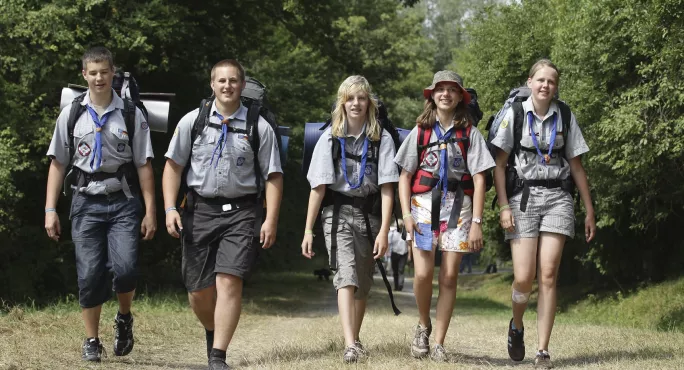Parents, teachers and politicians hope for many things for children as they enter adulthood.
In a complicated and ever-changing world, we hope to create generations of young people who are comfortable in their own skin, at ease making good decisions and able to determine their own futures. Fundamentally, we want young people to enter adulthood with an understanding of how to be in the world.
There is agreement from the government and the opposition, from educationalists, teachers and parents, on the importance of character education, of giving young people the space and skills to develop strengths beyond the academic curriculum. It is in this space that young people can develop their authentic selves - they can understand their strengths in terms of virtues, not just academic success.
And it is clear that the development of character is not just a “nice-to-have”. We have a strong evidence base that the development of character can make a significant difference to life outcomes. Attributes such as curiosity, integrity, empathy and resilience can influence educational attainment, employability, mental and physical health, even life satisfaction. These character attributes, developed in childhood, have an impact on every part of a young person’s adult life. There is no workplace, no public space, no friendship group or family setting where sole reliance on academic knowledge and skill is enough to succeed.
The development of virtues and values to this extent does not just occur in the classroom, and it certainly isn’t necessarily a natural by-product of the traditional pedagogies of the classroom. At the Scouts, like many youth movements and organisations, we have long recognised that non-formal education and the practice of learning by doing helps young people to develop character. Resilience and curiosity, initiative and empathy, decision-making and diplomacy - these qualities are developed when face-to-face with the consequences of your decisions, when other people are reliant on your actions.
But through our own research of more than a thousand 14- to 18-year-olds, we have discovered a disparity in access to character-building activity. Children attending non-fee-paying schools and those receiving free school meals are significantly less likely to have access to non-formal activities. For example, only one in four students on free school meals reported taking part in social action, compared with one in three of their peers. Less than 40 per cent of state-school respondents agreed that their school provided enough opportunities for volunteering and social action, compared with 70 per cent of fee-paying-school respondents.
The consequences of that disparity are clear: young people without access to non-formal education are significantly less confident in the character attributes that can impact their development. On every character attribute measure we tested, Scout members were at least 10 percentage points higher in terms of reporting top marks - and were 20 percentage points higher in most cases.
We can’t leave the development of these character traits to chance. Worse, we cannot watch one group of young people achieve and develop over and above another, simply by virtue of the postcode they were born in.
Youth movements like the Scouts have an important task: how do we ensure that the opportunities we offer are equally available to all?
We are doing our upmost to challenge our own movement to ensure that Scouting is accessible for all, opening over 250 Scout units in the most deprived areas of the UK, with 10 more units opening this month alone.
But it is not possible, even working with our partners across the voluntary sector, to reach all the children we would like to. More importantly, students on free school meals - the students we want to reach - want those opportunities available to them through their schools, with just under half agreeing that they should be able to take part in scouting activities during school hours.
Schools have an incredibly important role to play in creating equitable access to learning experiences, by providing the space, time and opportunity for non-formal education. Voluntary organisations like the Scouts can provide the expertise and experience. We’re asking schools to work with us in partnership; to help us reach the students we can’t; to help us give those students the opportunities afforded to their more privileged peers.
The evidence is clear. Character education is not a “nice-to-have” - it can determine a child’s future and some young people are missing out. Without equitable access to character-building activity, the role of non-formal education will be to widen inequality, not narrow it.
All young people deserve the opportunity to decide how to be in the world. It is our responsibility - schools and providers in partnership - to create those opportunities for every single young person.
